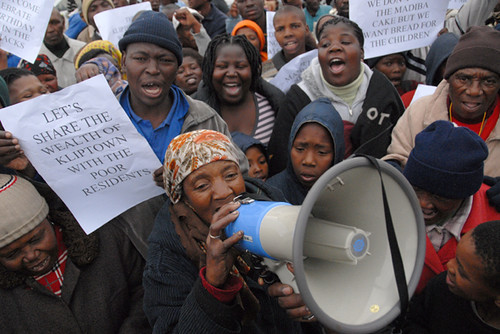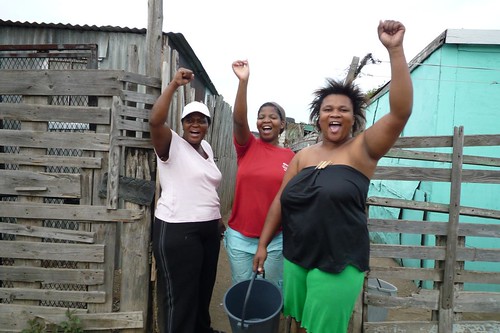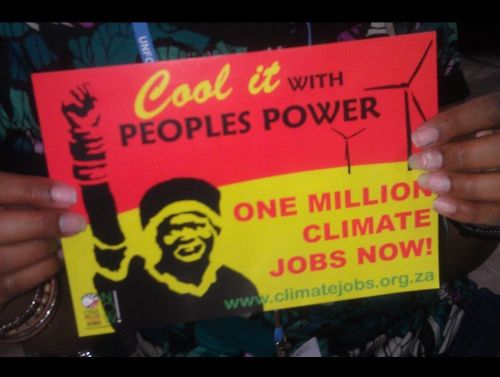South Africa
COSATU general strike shakes South Africa

By Ashley Fataar, Cape Town
March 12, 2012 – Links International Journal of Socialist Renewal -- March 7 saw South Africa’s largest protest in several years when more than 200,000 workers took to the streets in 32 towns and cities across the country. More than 1.5 million workers stopped work.
The strike – called by the Congress of South African Trade Unions (COSATU) to protest against the growing role of labour brokers and the introduction of road tolls -- was prompted by worsening poverty and working conditions in South Africa. There has been a steady decline in the wage share of national income, down from 56% in 1996 to less than 47% today.
After the Durban climate talks: State and market climate failures amplified by civil society failure

By Patrick Bond, Durban
February 28, 2012 -- Links International Journal of Socialist Renewal -- In 2007, former World Bank chief economist Nick Stern termed climate change the worst "market failure" in history – since those who pollute with greenhouse gases are not charged, and since they threaten future generations and vast swathes of natural life – and at that moment, even the 1991 ravings of another former World Bank chief economist, Larry Summers, made sense.
"I think the economic logic behind dumping a load of toxic waste in the lowest-wage country is impeccable and we should face up that", according to a memo with Summers’ signature, although actually Summers was a mere plagiarist of Harvard economist Lant Pritchett’s genius, insiders allege.
'Uneven and combined Marxism' within South Africa’s urban social movements

A protest by Kliptown Concerned Residents and the Anti Privatisation Forum.
‘Global sustainability’ wilts in South Africa’s political hot air

By Patrick Bond, Durban
South Africa: ANC centenary a display of elite power

[Stop press: Soon after the publication of this article in South Africa, the author was beaten and arrested by police on trumped-up charges, see below.]
By Ayanda Kota
January 12, 2012 -- Pambazuka News, posted at Links International Journal of Socialist Renewal with permission -- The centenary celebrations of the African National Congress (ANC) are being used to persuade the people that a movement that has betrayed the people is our government; a government that obeys the people, instead of a government of the elites, for the elites and by the elites. It is a hugely expensive spectacle designed to drug us against our own oppression and disempowerment.
1912-2012: African National Congress at 100

By John S. Saul
Durban’s climate zombie tripped by dying carbon markets
Patrick Bond interviewed by the Real News Network on December 19. He explained the failure of the carbon markets. Go HERE for a full transcript.
[For more on the COP17 Durban climate talks, click HERE.]
By Patrick Bond
Τι μπορεί να αναμένεται από τις συνομιλίες του Ντάρμπαν;

Νίμο Μπάσεϊ. Photo: Right Livelihood Award Foundation.
National Union of Metalworkers of South Africa: COP17 and class struggle
The National Union of Metalworkers of South Africa convened its first International Seminar on Climate Change and Clas

Indigenous peoples condemn climate talks fiasco and demand moratorium on REDD+
By the Global Justice Ecology Project

